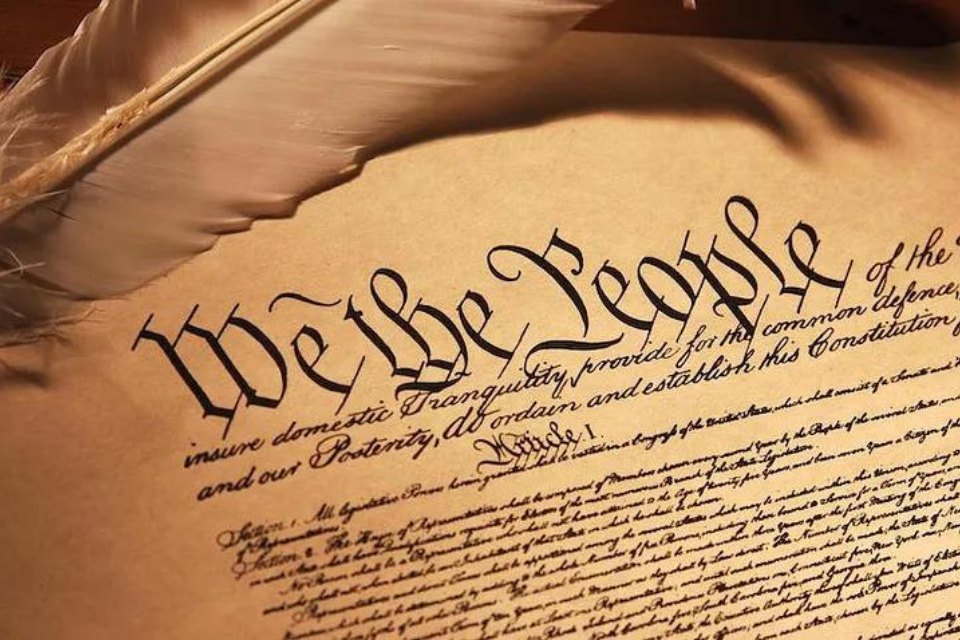The Constitution in times of crisis: America’s inflection points
September 9, 2020
by Steve Messinger

Photo Credit: James Steidl
We are a nation created out of war – a war where we believed we were being denied the inalienable rights of life, liberty, and the pursuit of happiness. While fighting this war, we created the first modern constitution, the Articles of Confederation.
While it had many failings, it created the concept of a government that would bring together the thirteen new states created through the Declaration of Independence. Fortunately, we had a group of very bright, concerned men who recognized that there had to be a better way to govern thirteen sovereign states that were often more interested in their own success than that of the nation. This group of 54 men wrote a new constitution that was as revolutionary as the war we had recently won.
They chose a model of three equal branches. Well, they really favored the Legislative branch. They were afraid of giving the Executive too much power. They discussed having a multi-headed Executive. They talked of having the Executive chosen and beholden to the Legislature. Finally, however, they chose a model with numerous checks and balances, with each branch having a level of control over the other branches. For this model to work, they expected the Legislative branch to oversee and check any attempts by the Executive to exert undue action that could damage the republic. For almost 230 years this has worked.
Our country has faced numerous crises in its history. 1800 saw the first successful peaceful transfer of power between opposing parties. 1820 and 1850 saw compromises over slavery that let the nation continue to grow. 1832 saw the principle of the supremacy of the national government over state governments, where states could not nullify a federal law. 1861-65 saw America’s greatest challenge, the Civil War, which reunified the nation, abolished the original sin of slavery, and gave all men the right to vote.1876 saw the first modern election where the presidential candidate won a majority of the popular vote but lost the election by one electoral vote.1888, 2000, and 2016 once again saw presidential candidates having a plurality of popular votes while losing the election. 1918-19 saw 500,000-800,000 Americans die from influenza. We carried on and stayed strong.
Through all of these crises and at least six economic recessions or depressions since 1865 lasting at least 1½ years with at least 10% loss of GDP, the American Republic stayed strong. There were strident voices against “the other”: the 1920’s saw a rebirth of far-right activities against Blacks; the 1930’s saw far right activities against Jews; the 1950’s saw far right activities against the “Communist Menace.” Jim Crow laws continued to hamper the progress of Blacks. Through all of these, the American Republic stayed strong.
Today we find ourselves at a true inflection point. We are facing a medical menace that is not only sickening millions and killing tens of thousands of Americans but forcing our businesses into a recession/depression we have not seen in 90 years. We are not seeing the checks and balances that our forefathers incorporated into the Constitution being implemented, as loyalty to a political party “trumps” loyalty to the country. (Note: Our Founding Fathers did not anticipate political parties and therefore did not factor them into the Constitution.) We are approaching a momentous election where the incumbent will not assure the people that he will accept the results of the election unless he wins.
The writers of the Constitution were concerned about a singular executive committing “high crimes and misdemeanors.” They provided a mechanism, impeachment, to remove an executive found to have done these deeds. They did not expect it to be exercised often. It was not designed to address “bad policies.” They expected the House of Representatives to hear a case and present articles of impeachment if the executive was deemed to have failed to honor his oath of office. They expected the Senate to try the case and to vote on the executive’s removal after listening to all the evidence available.
We are at a time unlike any in our history. We face a quadruple threat: a medical disaster, an economic disaster, a Legislature unwilling to address the needs of the people or to fulfill its impeachment obligations, and an executive whose first concern is his benefit and his re-election.
Is our republic strong enough to weather this “Perfect Storm?” In 2016, fewer than 56% of registered voters cast their ballots. In 1876, the most contested election in American history, with anger still in many hearts from the Civil War, almost 82% of registered voters cast their ballots. It is this author’s opinion that if Americans want to save this country, we must vote. Vote like our lives depend on it because they do.